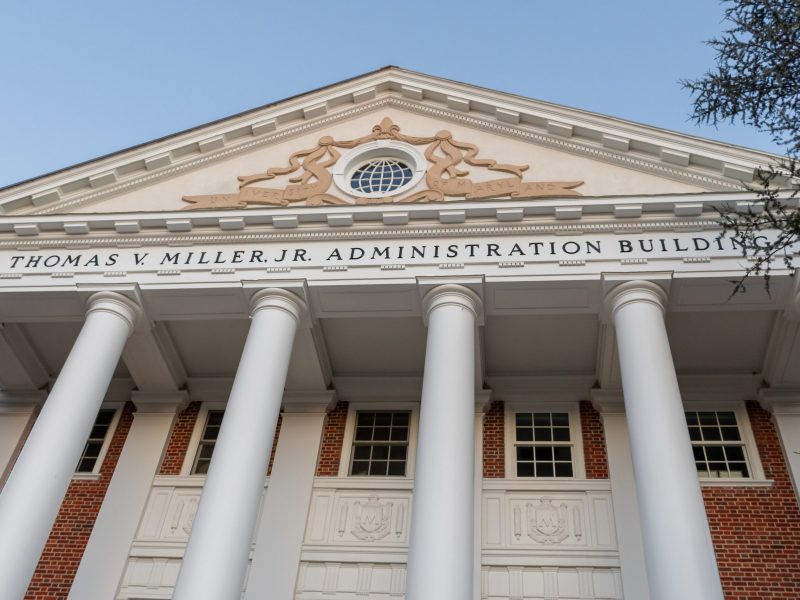Views expressed in opinion columns are the author’s own.
When I was 13 and just exiting my “baby fat” phase, my grandfather told me, through his Russian accent, that I needed to start lifting weights. He argued that I needed to be strong to protect my family, an attitude shaped by his life in the Soviet Union. These views of masculinity reflect the opinions of many Russians, who often respect strength above all else.
The pursuit of strength has enabled a former KGB officer to maintain an iron grip of power in Russia. President Vladimir Putin has sought to restore Russia to the level of power and influence it maintained throughout the Cold War. His government fueled a civil war in Ukraine, annexed Crimea from that sovereign state, undermined the U.S. electoral system through a series of cyberattacks and still actively fights on behalf of Syrian President Bashar al-Assad.
Now that Trump is president, which may be the result of those cyberattacks, it’s increasingly evident that his proposed reset of Russian relations is a quickly dissipating dream. The reset was fueled by a lack of understanding of what Putin wants.
Putin does not want the U.S. as his ally. In fact, Putin needs the U.S. as his adversary. According to his worldview, Putin must diminish the influence of the U.S. and Western Europe throughout the world to make Russia great again.
Putin claims that since the Cold War, the U.S. has sought to “reshape the world to suit their own needs and interests.” Now he seeks to counter that perceived trend through military aggression and the expansion of Russia’s sphere of influence.
Why annex Crimea? To reassert Russian influence in Eastern Europe, plus a 25 percent boost in approval ratings for the Russian president. Why support Assad? To ensure the Russian naval base in Syria remains open while keeping a foothold in the Middle East.
A reset of relations with Russia is a delusion, and Trump must completely abandon that goal. Instead, he must pursue a policy of U.S. strength and NATO support. Trump has already begun to move down this path. Within the last month, the president has accused Russia of trying to cover up Assad’s use of sarin gas on civilians, denounced Putin’s backing of Assad and claimed that NATO is “no longer obsolete” (not that it ever was).
What Trump must understand is that denunciations of specific actions and continued sanctions will not be enough to stop Putin. Although Secretary of State Rex Tillerson delivered a near-ultimatum at a recent G7 meeting, asserting “the reign of the Assad family is coming to an end,” he did not persuade the Russian leader. Putin responded by threatening to cancel a meeting with Tillerson, again gaining leverage.
The Russian leader has continued to flex his muscle by trying to destabilize upcoming elections in France and Germany. Putin wants a world run by isolationist leaders, who he believes will allow him to further his footholds in Europe and the Middle East by weakening the European Union and NATO. His ultimate prize would be to tear down the liberal world order that has prevented a global calamity since the end of World War II.
Should Putin continue his election tampering, Trump should respond with a cyberattack of his own. This will take a great deal of poise. Nobody benefits from open war with Russia; however, a proportional response may be the only way to make a man like Putin believe there are consequences to his constant aggression. The U.S. could respond in kind, by hacking and releasing damaging information about Putin. In fact, this option was considered by members of the Obama administration. Another option the administration laid out was a cyberattack on Russian infrastructure or networks. Although they ultimately decided to use economic sanctions, the continued aggressions of the Russian president are grounds for a harsher response. What if U.S. hackers attacked the power grid in Moscow? Turning off the lights of Putin’s regime would certainly send the message that he cannot proceed without penalty.
These attacks would be justified. The existence of NATO is based on the principle that an attack on one member state is an attack on all of us. Should Mr. Putin continue to damage the electoral systems of NATO members, the U.S. would be justified in pursuing a counterattack as a method of deterrence.
This is not to say the U.S. should do nothing to pursue better relations with Russia. Officials in the Trump administration should seek cooperation for nuclear disarmament, space exploration and scientific research. Cooperation breeds trust, which could help diffuse the tension between the world’s two largest nuclear powers.
However, unless the U.S. shows Putin it is willing to use its strength to stop him, he will continue to pursue Russian greatness through aggression. He cannot be appeased or ignored, but he can be deterred with a demonstration of strength. As a result, Trump must act decisively and thoughtfully to stop Putin’s aggression.
Mitchell Rock is a junior government and politics and physiology and neurobiology major. He can be reached at mrock13@umd.edu.



